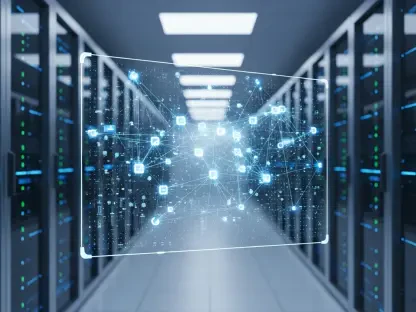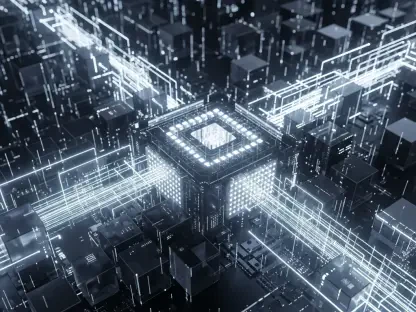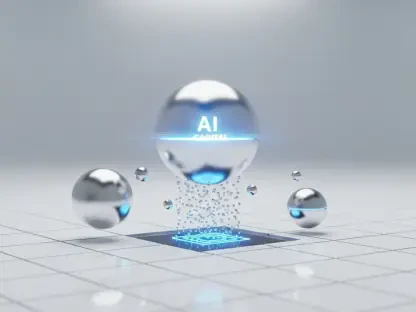Setting the Stage for Kubernetes Management Challenges
In today’s cloud-native landscape, managing Kubernetes environments has become a daunting task for many organizations, with studies indicating that over 70% of enterprises struggle with scalability and expertise shortages in site reliability engineering (SRE). As applications grow in complexity, the demand for streamlined workflows and automation has never been more critical. Enter Devtron, an open-source platform designed to revolutionize SRE practices for Kubernetes clusters by reducing manual effort and enhancing operational efficiency.
This review dives deep into Devtron’s latest iteration, version 2.0, unpacking its innovative features and assessing its impact on the industry. With the integration of cutting-edge technologies like artificial intelligence (AI) and advanced cost management tools, the platform aims to address persistent pain points in cloud-native application management. The following sections explore how this solution positions itself as a game-changer for DevOps teams navigating the intricacies of Kubernetes ecosystems.
Core Features and Innovations in Version 2.0
AI Agents Driving Autonomous Operations
One of the standout additions to Devtron version 2.0 is the incorporation of AI agents capable of autonomously executing pre-approved runbooks. This functionality significantly cuts down on repetitive manual tasks, often referred to as toil, allowing SRE teams to focus on strategic priorities. The ability to interact with these agents using natural language processing makes the platform accessible even to those with limited technical expertise.
CEO Ranjan Parthasarathy has described this feature as transforming Devtron into a unified interface for SRE workflows. By providing a single point of control, it eliminates operational blind spots and fosters efficiency. Smaller teams, in particular, stand to benefit, as they can now oversee larger application portfolios without requiring extensive Kubernetes know-how.
The broader impact of AI integration lies in its potential to reshape team dynamics. With automation handling routine processes, organizations can allocate resources toward innovation and system design, addressing the industry-wide scarcity of skilled professionals. This shift marks a significant step toward democratizing SRE capabilities across diverse business scales.
Bridging Legacy and Modern with KubeVirt Support
Another noteworthy enhancement is the support for KubeVirt, an open-source framework that enables monolithic applications to operate within Kubernetes clusters through kernel-based virtual machines (KVMs). This feature is a lifeline for companies transitioning legacy systems to cloud-native architectures without undergoing complete overhauls. It facilitates a smoother migration by accommodating older workloads alongside modern microservices.
For industries with entrenched traditional systems, such as finance or manufacturing, this compatibility reduces friction in adopting Kubernetes. It allows a phased approach to modernization, preserving business continuity while embracing new technologies. The flexibility offered by KubeVirt support underscores Devtron’s commitment to inclusivity across varied technological landscapes.
Cost Insights with FinOps Tools
Cost management remains a pressing concern as Kubernetes workloads scale, and Devtron version 2.0 tackles this with integrated financial operations (FinOps) tools. These tools provide detailed visibility into expenses tied to cluster operations, empowering teams to optimize resource allocation. Such transparency is crucial in an era where unchecked costs can spiral quickly.
By addressing financial oversight, the platform alleviates a critical pain point for DevOps professionals who often grapple with balancing performance and budget constraints. This feature not only aids in fiscal responsibility but also enhances decision-making around infrastructure investments. Organizations can now align their Kubernetes strategies with economic goals more effectively.
GPU Integration for AI-Driven Workloads
Recognizing the surge in AI and machine learning applications, Devtron has introduced support for graphical processing units (GPUs) in its latest update. This capability caters to the computational demands of AI workloads running on Kubernetes, ensuring that clusters can handle intensive tasks without performance bottlenecks. It positions the platform as a forward-thinking solution for tech-driven enterprises.
Industries leveraging data analytics or predictive modeling will find this feature particularly beneficial, as it supports the infrastructure needed for cutting-edge projects. The integration reflects an understanding of emerging workload trends and equips users to stay ahead in competitive markets. Such adaptability is a testament to Devtron’s relevance in dynamic tech environments.
Industry Context and Adoption Trends
Automation as a Response to Skill Shortages
The tech sector is witnessing a pronounced shift toward automation and AI-driven solutions to counteract the persistent shortage of qualified SRE professionals. Platforms like Devtron are at the forefront of this movement, offering tools that reduce dependency on extensive manual expertise. This trend is reshaping how reliability is maintained in complex systems.
While automation promises efficiency, the necessity of human oversight cannot be overlooked. Validating AI outputs and ensuring system integrity remain essential to building trust in autonomous processes. The balance between machine efficiency and human judgment is a defining challenge for the industry moving forward.
Platform engineering is also evolving, with a noticeable pivot from traditional DevOps tools to Kubernetes-specific solutions. This transition highlights a growing recognition of the unique demands of cloud-native environments. Devtron’s unified control plane exemplifies this shift, providing a tailored approach that streamlines operations for modern infrastructures.
Real-World Impact and Ecosystem Integration
Devtron’s adoption statistics are impressive, with over 21,000 installations and nine million deployments within the Kubernetes community. These figures underscore its growing influence and reliability as a go-to solution for SRE needs. The platform’s ability to integrate with established open-source tools further enhances its appeal across diverse use cases.
Notable integrations include Argo for continuous delivery, Helm for streamlined deployments, and Flux for dependency management. These components are harmonized under a single interface, optimizing performance for cloud-native applications. Such synergy simplifies workflows, particularly for teams managing extensive Kubernetes deployments.
Industries ranging from e-commerce to healthcare have found value in Devtron’s capabilities, especially in scenarios requiring rapid scaling or high availability. Its role in unifying disparate tools into a cohesive system enables organizations to achieve operational excellence. This widespread applicability cements its status as a versatile asset in the SRE toolkit.
Hurdles in Widespread Implementation
Resistance to Change Among DevOps Teams
Despite its advancements, uncertainties linger about the readiness of DevOps teams to fully embrace SRE automation platforms like Devtron. Resistance to moving away from familiar, traditional tools poses a barrier to adoption. Many organizations face internal challenges in aligning with new operational paradigms.
Expertise gaps further complicate the transition, as staff may require upskilling to leverage the platform’s full potential. This highlights the need for comprehensive training and change management strategies during implementation. Addressing these hurdles is vital for maximizing the benefits of automated SRE solutions.
Building Trust in AI-Driven Processes
Trust in AI agents remains a critical concern, particularly for mission-critical workflows where errors can have significant consequences. While Devtron’s autonomous features offer efficiency, the importance of human validation cannot be understated. Ensuring reliability in AI outputs is a prerequisite for broader acceptance.
Organizations must adopt a cautious approach, testing AI capabilities in controlled settings before full deployment. Over time, as these agents demonstrate consistency, confidence in their application will likely grow. This gradual buildup of trust is essential for integrating automation into core SRE practices.
Reflecting on Devtron’s Contribution to SRE
Looking back, Devtron version 2.0 emerged as a pivotal advancement in the realm of site reliability engineering for Kubernetes environments, delivering robust features like AI-driven automation, FinOps tools for cost control, and support for GPUs and KubeVirt. Its comprehensive approach tackled key industry challenges, from scalability to skill shortages, setting a high standard for operational efficiency.
For teams and organizations considering the next steps, exploring Devtron’s capabilities through pilot projects could provide valuable insights into its fit within existing workflows. Investing in training to bridge expertise gaps and fostering a culture of experimentation with AI tools are crucial actions to ensure successful adoption. These measures help pave the way for leveraging automation to transform SRE roles.
Beyond immediate implementation, the broader implication is a redefinition of responsibilities within SRE teams, shifting focus toward strategic innovation rather than repetitive tasks. As trust in automated systems solidifies, the potential for Devtron to drive long-term improvements in cloud-native management becomes evident. This evolution points toward a future where intelligent platforms play an integral role in sustaining reliability at scale.









